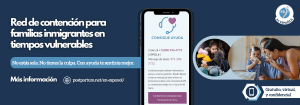By Amber Richardson, PhD, LPC, NCC
The supermom myth is the unrealistic and culturally pervasive expectation that parents—often mothers—should effortlessly balance multiple roles and responsibilities, such as caregiving, career, household duties, and maintaining relationships, all while appearing strong, self-sacrificing, and emotionally collected.
For Black parents, this myth is often compounded by the Strong Black Woman Schema (SBWS), which emphasizes resilience, independence, and the ability to endure challenges without complaint. While this ideal may stem from cultural pride and historical necessity, it can lead to significant stress, isolation, and mental health challenges, particularly during life transitions like parenthood.
The supermom myth dismisses the realities of human vulnerability and the need for support, fostering an unhealthy cycle of perfectionism and self-neglect, significantly impacting the emotional and mental well-being of parents.
Stigma and Mental Health Services
The stigma surrounding mental health services in the Black community further exacerbates the challenges posed by the supermom myth and SBWS. Admitting to mental health struggles is often viewed as a sign of weakness or a sign of failing to live up to societal and cultural expectations. This stigma, coupled with systemic barriers like a lack of access to culturally competent care, prevents many black parents from seeking or utilizing mental health services that could help alleviate the stress of parenthood. The stigma associated with mental illness contributes to the mental battle and cognitive dissonance that many experience throughout the perinatal period.
Cognitive Dissonance and Seeking Support
The expectation to embody strength and self-reliance often creates a conflict between what parents feel and what they believe they should do. The perinatal period is an emotionally vulnerable time, and identifying with the supermom myth can discourage black women from openly expressing their emotions or seeking help, further reinforcing their alignment with the SBWS. This cognitive dissonance—the internal struggle between the need for help and the belief that seeking help is a sign of weakness—is a direct result of the SBWS. For example, a parent experiencing postpartum depression might avoid seeking therapy because it feels like a personal failure or as if they are incapable of handling parenting as they “should” be able to with ease. Instead of seeking help, one might choose to endure their struggle and prioritize self-sacrifice. The supermom myth further fuels this dissonance by glorifying an unattainable standard of “doing it all” or “having it all figured out.”
In many communities, there is an unspoken rule to “keep it together” to avoid reinforcing harmful stereotypes or being perceived as incapable. This pressure can isolate individuals during critical periods, such as the postpartum phase, when social support and open communication are vital. The SBWS reinforces this isolation, perpetuating a narrative that equates asking for help with failure.
Racking the Weight: Steps Toward Change
Addressing the impact of the supermom myth and the SBWS requires an intentional effort to shift cultural narratives and create supportive environments.
- Humanize Motherhood: As a collective, we must challenge the narrative that strength means suppressing emotions, and emphasize that seeking help is a necessary act of self-care. Vulnerability allows mothers to embrace their humanity. It acknowledges that motherhood, like any other demanding role, comes with challenges, exhaustion, and moments of doubt. When vulnerability is normalized, it sends the message that it’s okay to have difficult days, to feel overwhelmed, and to seek help. This humanizes the experience, letting mothers know that they are not alone in their struggles and that these feelings don’t detract from their worth or love for their children.
- Educate and Empower: Providing resources and education on the harmful effects of the supermom myth and SBWS is also vital in facilitating change, and reducing stigma and shame. The fear of being judged or viewed as inadequate often holds mothers back from expressing vulnerability. By normalizing vulnerability, society can reduce the stigma and shame that comes with needing support. It helps break the harmful cycle of guilt many mothers experience, leading to a more compassionate and supportive community. Workshops, social media campaigns, and storytelling are tools that can empower parents to prioritize their mental health. Additionally, advocacy for mental health providers to receive training in understanding the unique challenges faced by Black parents ensures that care and services provided are empathetic, relevant, and effective.
- Foster Community Support: Networks of support through family, friends, and peer groups like those offered by Postpartum Support International (PSI) are a necessity. Sharing experiences within these spaces can reduce feelings of isolation that many parents experience during the perinatal period. It creates a network where women can realize they are not alone and that others face similar challenges. This sense of solidarity is crucial in reducing feelings of inadequacy and encourages more women to seek the support they need. Community support provides an emotional outlet, which is particularly important for women who feel the weight of the supermom myth or SBWS. Many women, especially Black women, often carry heavy emotional burdens but are hesitant to share them due to fear of judgment or perpetuating negative stereotypes. A supportive community creates an environment where emotions can be expressed freely, and individuals can connect with others who share similar struggles.
The supermom myth and the Strong Black Woman Schema place immense pressure on Black parents, often at the expense of their mental health. By understanding the cultural and systemic barriers that contribute to these challenges, we can begin to dismantle harmful narratives and foster environments where seeking help is seen as a strength. It’s essential that we shift our cultural narratives to one that recognizes vulnerability and self-care as vital components of true strength. In doing so, we not only support the mental health of Black parents but also pave the way for future generations to experience parenthood without the weight of unattainable or unrealistic expectations.
To all the mothers, especially those who feel the weight of these societal expectations: You are not alone. Your struggles do not make you weak, and seeking help is not a failure and does not equate to you being a “bad mother”. Strength lies in your ability to be vulnerable, to ask for and lean on support, and to care for yourself as you care for others. I challenge you to challenge the myths that are limiting and always remember that your mental health matters!
PSI Provider Directory
Black Moms Connect and Other Perinatal Peer Support Groups
Get Help










